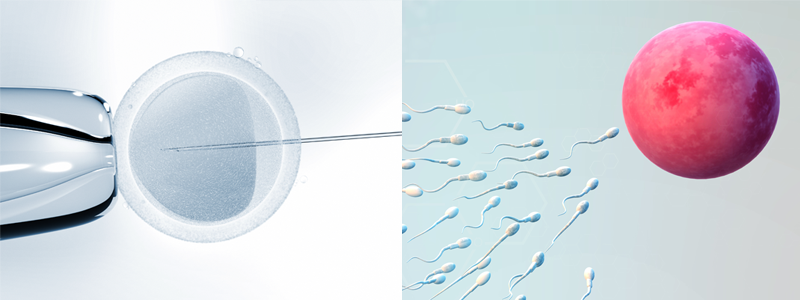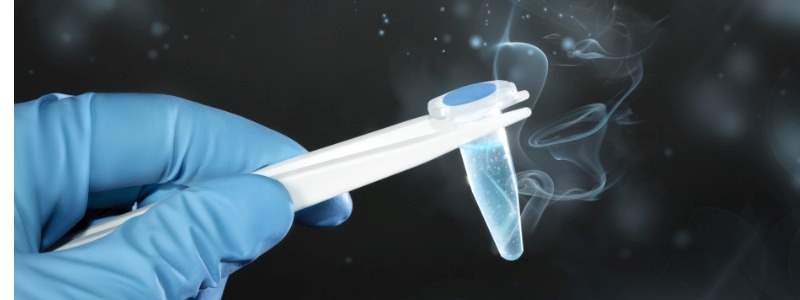Going through IVF treatment can be a stressful process. This is because there are many factors contributing to the stress, including the time it takes, the loss of work, the cost involved, the strain on relationships, the effects of the medication and concerns about the process. However, there are many things that can be done to reduce stress levels and make the journey through IVF treatment an easier one.
Before treatment
Before treatment begins, you may be feeling a mixture of excitement and nervousness about starting IVF. There is a lot to think about before starting the treatment, and the best way to reduce your stress before and during treatment is to plan ahead and have everything prepared before beginning. If you have any questions, always feel free to call the fertility clinic to either directly ask or pass a message onto the Doctors or Nurses. It is important that you are empowered with knowledge.
Time: IVF treatment can take anything from 2 weeks to a month, and you will be required to come in to the clinic every few days for scans and blood tests. At CREATE, all of our treatments take place in the woman’s natural cycle and are usually completed in 2 weeks. Before beginning, you should work out how you are going to manage this and whether you will have to take time off work or will be able to fit it in around work. If you live some distance from the clinic, there may also be practical issues to consider around travelling to and from the clinic, so you would need to plan ahead. It is best to have an idea of exactly what the treatment will involve and roughly how many times you will need to attend the clinic.
Money: IVF is an expensive treatment, and it is important to have your finances in order before commencing. It may be worth sitting down and working out exactly how much your IVF will cost. On top of the base price of IVF, there may be other costs that you want to consider e.g. ICSI, blood tests, freezing and storage of excess embryos. If the cycle is unsuccessful, how many additional cycles would you be willing to pay for? It is best to be prepared for these considerations so that they do not take you unawares. At CREATE, our Natural and Mild IVF is more affordable because we reduce the amount of drugs required during treatment. We also offer 3 IVF cycle packages that reduce the cost of treatment compared with single cycles of IVF. Before treatment begins, our administrators will go through all the costs of treatment with you.
Moral: When it comes to the creation of embryos in the lab, many people have values and belief systems that may affect the decisions they make. Before starting IVF, think about the possible ethical questions that may arise. If you end up in the position of having more than one embryo at the end of treatment, there will be decisions to be made. If you are suitable for multiple embryo transfer, you need to weigh up the higher chance of success with the risk of multiple pregnancy. Multiple pregnancy is one of the greatest risk factors of fertility treatment because it increases difficulties during pregnancy and birth. There is also the question of whether to freeze excess embryos and how you will feel if there is a need to discard embryos. To the best of our ability, we will work with your ethical beliefs, for example by only creating one embryo.
Relationships: Relationships are very important for people going through treatment, and it helps to have a strong support network to support you through it. Before beginning treatment, decide who you want to confide in and how much you want to tell them. If you are going for IVF with a partner, it’s best to have a strong relationship before starting, as IVF can put pressure on relationships. Part of forming this strong foundation might be to establish expectations before beginning, e.g. time commitment, going to appointments. Counselling is also available if you feel you need to talk to someone with professional experience.
Next steps: If the cycle is successful, there are many factors to consider including financial and work situations. Unfortunately not everybody’s cycle is successful, and you need to be prepared for the possibility that the cycle may not work. Deciding on what your next steps will be if the cycle does not work is an empowering preparation. It might be worth thinking through how many cycles you would be prepared to undergo and if there are alternatives such as donor gametes and adoption.
During treatment
IVF can take its toll, physically and emotionally, particularly the 1st cycle, when the process and medical team are unfamiliar, and it is important to look after your wellbeing throughout your IVF journey. It is worth devoting some time on your relationships. With partners or close friends it can become exhausting talking about the IVF. Some people like to devote a set amount of time to discuss it per day, and then not to talk about it any more. Others prefer to share and talk about it as much as possible. Find what is right for you. Patients going through IVF have told us that establishing relationships with others going through the same process can help to normalise it and to make the process less stressful.
During this time it is best to avoid other big stressors and life-changing events such as moving house/changing jobs. In terms of a mental attitude, it is best to expect the unexpected, so that nothing comes as too much of a surprise, and to relinquish control of what you cannot control.
There are many ways to de-stress. Some suggestions are: gentle exercise (which releases endorphins), humour, relaxation tapes, meditation, a short break away, health spa, yoga, bubble baths, writing a diary/blog, massage.
After treatment
For many people, the wait after the embryo transfer to hear the results is the most stressful part of the IVF process. It can be an anxious time so planning what to do with your time may help with this, and it is worth deciding where and with whom you wish to be when you receive the results.
If the cycle is successful then you may still like to be closely monitored. You will receive a free early pregnancy scan if you have had treatment with us and can then ask your local GP to oversee the remainder of your pregnancy. Lots of people continue to worry after a successful pregnancy test, and you may like to continue using the de-stressors mentioned above, or whatever you find helpful. It can be good to take mild exercise, so long as it is not too vigorous, and all other activities can be continued as usual.
Hopefully, the cycle will have worked, but if it hasn’t it has still not gone to waste. You can consider the cycle a diagnostic one; the team will have discovered what works in your protocol and what, if anything, needs to be changed. We offer a free follow-up so you can discuss what the best next steps are.
Does stress impact upon the success of treatment?
It has long been thought that stress has a negative impact upon treatment, as it was believed that stress hormones can make cycles irregular and interfere with other hormones. There is some evidence to suggest that stress can reduce fertility in this way. The good news is that research has found that feeling stressed about treatment doesn’t affect your chances for treatment success. One large meta-analysis, conducted by Cardiff University’s School of Psychology, looked at the data from fourteen studies, which included a total of 3,583 women. They found that the level of pre-treatment anxiety or depression did not affect pregnancy rates- the women with high anxiety were just as likely to conceive during treatment as those with lower anxiety.






